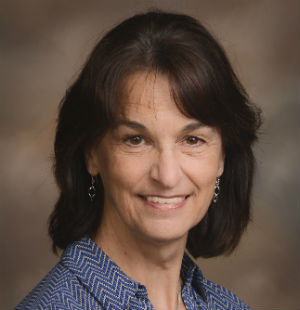PT researchers studying treatments for post-stroke fatigue

Oct. 23, 2023 – DENTON – Many stroke survivors suffer from fatigue, which can significantly impact their quality of life. This overwhelming sense of tiredness can impact everyday activities, and make otherwise routine tasks such as getting dressed and cooking dinner take longer than pre-stroke life.
Now, two Texas Woman’s professors are hoping their research can lead to treatments that can improve life for those who are dealing with post-stroke fatigue.
Associate Professor Hui-Ting Goh, PhD and Professor Emeritus Elaine Jackson, both from the School of Physical Therapy at the Dallas Center, have been awarded a $372,870 three-year grant from the National Institutes of Health to fund their project, "Behavioral and Neural Correlates of Post-Stroke Fatigue."
“Many individuals who have had a stroke experience fatigue, which prevents them from fully participating in activities,” Goh, the lead investigator, said. “Unfortunately, we know very little about what causes fatigue after stroke, let alone how to manage or treat post-stroke fatigue. The goal of this project is to use a multi-modal approach to identify what might relate to post-stroke fatigue. These factors can then be potential treatment targets.”

The multi-modal approach will include clinical questionnaires, movement analysis, neurophysiological and neuroimaging techniques to assess fatigue.
“Our long-term goal is to develop target-specific interventions for post-stroke fatigue so that survivors can live a full life,” Goh said.
The grant will allow Goh and Jackson to provide a five-day brain stimulation intervention to 32 participants as well as acquire brain MRI and behavioral data before and after the intervention. The MRI data will help evaluate the neural mechanism underlying post-stroke fatigue.
An important goal of the grant was to involve students in a rigorous research experience. With the funding, stipends will be provided for a full-time PhD student and hourly undergraduate and graduate students.
Goh’s research at TWU focuses on mechanisms underlying movement control and recovery after brain injury.
“As a physical therapist, I am always interested in movement science and helping patients with brain injury to regain the ability to move effectively and efficiently,” Goh said. “Stroke recovery is a complex process with multiple factors interplaying, which makes studying stroke recovery challenging and exciting at the same time.”
Media Contact
Amy Ruggini
Digital Content Manager
940-898-3628
aruggini@twu.edu
Page last updated 11:40 AM, May 30, 2024